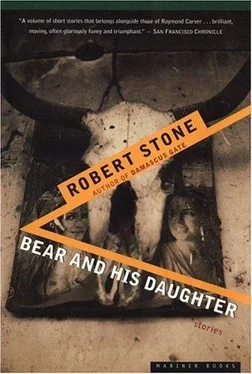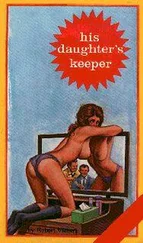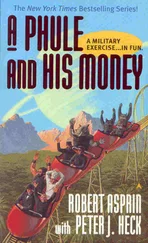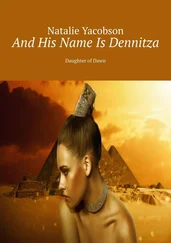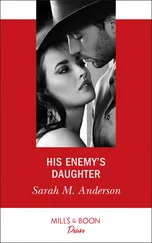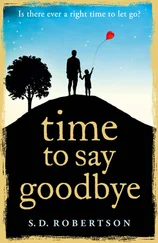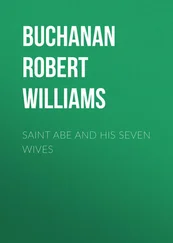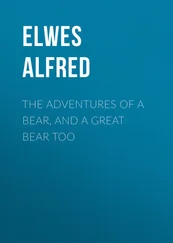“Writing poetry?”
She laughed self-consciously without answering.
“I’ll have to read it,” he said, “or get you to read it to me.”
“She’s a good poet,” John said. He was drinking Sprite, staying with the program. Smart and his daughter drank the red wine. “Not as good as you,” he said to Smart, “but pretty good.”
“John’s a connoisseur of poetry,” Rowan said. “He’s real diplomatic too.”
“I know she’s a good poet,” Smart said. “She always has been. Since she was a little girl.”
“We see the world through the same eyes,” Rowan said. “That’s literally true. Our eyes are the same. I mean look at them.”
Both the men in the room found somewhere else to look.
“Do you remember any of my poems?” Rowan asked her father. “Do you remember the ones I used to send you from California? Maybe you never got them.”
Smart had a recollection of his daughter sending him poems she had written. He had inscribed a book of his poems to her and she had made a folder of her poems and sent them to him. Then later in college, she had published some poems in university literary magazines and sent them to him. He had never, as far as he could remember, responded.
“I do remember some of them,” he said.
“Do you remember the one I wrote about the wind in the desert?”
“The one where you held the wind in your hands?”
Rowan put her glass down and raised both hands to her face.
“Oh God! You remembered it!”
It was the one single poem of hers he remembered. She had written it after her mother had moved her to the women’s collective in New Mexico. It was about ending up with nothing, with no one.
“Sure I remember it,” Smart said, draining his glass. “I think I used it.”
“Oh God,” Rowan said. “I’m glad you did.”
“How about playing for me?” Smart said. “Still got your pawnshop guitar?”
“Hey, I thought you’d never ask.”
She played him an old Scottishy song he liked about the Rose and the Linsey-O and then a song she had written, from one of her poems. But he seemed not to notice it was her poem.
“Hey, what about that steak?” John said. “We gonna eat or what?”
“Sure,” Rowan said without enthusiasm. Her eyes were fixed on her father. “I’ll do it.”
“No, no,” Smart declared. He struggled up from the sofa and poured another juice glass of wine for Rowan and himself. “I’m cooking. I see mushrooms and your homegrown jalapeños. I’m the steakmaster.
“You know,” he told them as he blundered about the kitchen, “I got thrown out of one of the casinos down on the lake. For being drunk, I guess.”
“‘Cause you look like a rodeo clown,” Rowan said. She plunked a chord on the guitar and put it aside. “That’s why.”
John gave her a disapproving look.
“They seemed so goddamn angry,” Smart said. “Like they hated me.”
“Probably did,” she said. She got up and went to the trailer lavatory. While she was in it John came up to Smart, one eye on the door. His voice was naturally so soft that it was always hard for Smart to hear him, and he was keeping it low.
“She’s doing crank, Will. She’s been doing it all day and I thought I better tell you.”
“She seems in good spirits.”
“That can change real fast. And she won’t sleep and she won’t shut up. So I hope you’re ready.”
“Actually,” Smart said, “I’m really not.”
“Then you shouldn’t have come.”
“You mean because I’m drinking?”
“You know what I mean,” John said. He had been speaking with his eyes closed, as some Northwest Indians do when they are moved to show respect. “I love hearing your poetry, Will. But I’m not gonna stay and protect either of you. Not with the two of you like this.”
With John’s eyes closed to him, Smart drank the glass of wine down. His third.
“Your poetry’s all you have,” John Hears the Sun Come Up told Smart. This time he looked him in the eye. His own eyes looked flat, utterly unfeeling. “It’s your soul, a good soul.”
“Thanks,” said Smart, touched.
“But you shouldn’t go near her. Not now.”
He went out without waiting for a reply.
When Rowan came out of the lavatory, they listened to his pickup roar to a start. He gunned the motor; braked hard backing out and took off explosively toward the highway.
“I’m glad he went.” Her face was brighter. She looked around for where she had left her wine glass. “He’s jealous.”
“Jealous.”
“Yes, he should be … I’d be if I was him.”
“Will he come back?”
She gave Smart a dark crazy smile and shook her head. “Not tonight.”
He watched her stand up and put a tape in her Sharp 4 recorder. It was Vivaldi, L’Estro Armonico. He saw that she was wearing a gun belt with a holstered pistol. The little space she stood in was piled from deck to overhead with books: The Golden Age of American Anthropology, Lewis Henry Morgan on the Iroquois longhouse, George Caitlin prints. There was also shelf after shelf on religion: the Gnostic Gospels, the works of Hans Jonas, kabbala, witchcraft, Wicca.
“Look at all your books, kid. You’re still beguiled by magic.”
“My books?” She laughed. Instead of sitting down, she stood beside his chair while the Vivaldi played. “You know when I was in high school the local cops flagged all the library books on witchcraft? They pulled me in. They thought my boyfriend was castrating cattle. Or I was. They told me I had to spy on the witches’ coven in the high school or they’d send me to juvenile jail.”
“Were you a witch?”
“I was a little bookworm. Writing my poetry. There wasn’t even a coven.” She laughed again. “You know, I tried to start one but I got bored.”
Now he laughed and put a hand on her hip and patted it.
“You like the way I look, Will?”
“You look very … constabulary. I mean, what with the gun.”
“They put me on enforcement. Can you imagine? I know more about the Temple, about the Paiute and Shoshone traditions, than any white-eyes in the state. So I’m supposed to chase over hill and dale after some dummy poaching ‘lope. A bitch, right?” She licked her lips and offered him a soiled envelope. There was a crystalline powder at the bottom of it. “Want some? It’s the famous ice. Crystal meth.”
“No thanks.”
“Go ahead,” she said, moving closer to him, pouting slightly. “Because you know we’ll get crocked and you’ll go to sleep on me and how often do I get to see you?”
“I know what you mean.”
“Go ahead.”
He dipped his finger into the stuff so there was a small mound on his fingertip and licked it off.
“Easy,” she said, “this is strong. You’ll get shot out of a cannon.”
“Right,” said Smart. The drug seemed to kick in almost immediately. “I guess I can tell you this,” he said. “I guess you’re a pal.”
“You can tell me everything, Will.”
His heart raced.
“You know, I came unstuck on my last reading tour. I have to get my act together.”
“How did you come unstuck?”
“I found myself in an office full of my poems. A professor’s office. He had every volume I ever published. So I filled my briefcase with them, all my books, and I swung the case against his window. His office was in this ghastly brick tower.” It seemed to Smart that he was speaking faster and faster. “I was trying to break the window, see. I wanted to break his window with my books.”
“Were you drunk?”
“Of course I was drunk.”
“Did you want to jump?”
“Yes, I suppose. But I could only shatter the inner layers of the window. I got his office full of glass and blood. It was after the harassment thing back east. And that was the end of my reading.”
Читать дальше
